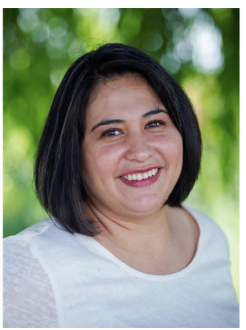Team

Dr. Rosana Zenil-Ferguson
-
I joined the Department of Biology at the University of Kentucky as an assistant professor on August 2022. Previously, I was an assistant professor at the University of Hawaii manoa from 2019-2022.
-
I earned my PhD in evolutionary biology from University of Florida after completing a MSc in probability and statistics at CIMAT Mexico. My research aims to understand how often species traits evolve and how these traits change the speciation and extinction process across the tree of life. Using a combination of mathematics, statistics, and botany, I am currently studying the evolution of polyploidy and breeding systems, and whether these traits create opportunities for innovation and speciation in flowering plants.
Graduate Students
Edison Rea Sancho

- Edison joined the lab in 2023 after earning a MSc in Biology at Columbus State University
- Edison works in Magnolia systematics and macroevolution.
Nicolás Castillo Rodríguez

- Nicolás joined the lab in 2024 after graduating with a MSc in Biology at the Universidad Nacional de Colombia
- Nicolás works on macroevolution of Puya in the Páramos and development of phylogenetic comparative methods.
Data Scientists and Postdocs
(more news soon)
Orlando Schwery, PhD (Soon to start in the NSF DEB- Andean Plant Diversification)
Pamela Rueda Cediel (Soon to start in the NSF DBI- Biological Integration Institutes. Polyploidy)
Lab Alumni
Carrie Tribble, PhD
- Current: Assistant professor at the University of Washington
- Website.
- In the ZeFe lab: NSF Postdoctoral Research Fellowship in Biology 2022-20225 (Plant Genome Track).
McLean Worsham
- Current: Terrestrial and Aquatic Ecosystems Manager at Pūlama Lāna’i Conservation AgencyGraduate Student (UH Manoa)
- In the ZeFe lab: Graduate student working on macroevolutionary models of fish polyploidy.
Luke Campillo, PhD
- Current: Hawai’i ‘USGS Research Analyst
- In the ZeFe lab: Postdoctoral Researcher (supported through NSF DEB- Andean plant evolution)
Jenna McCullough, PhD
- Current: NSF Postdoctoral Research Fellowship in Biology 2025-2028 (Rules of Life Track)
- In the ZeFe lab: Postdoctoral Researcher (supported through NSF DEB- Andean plant evolution)
Krystalyn Edwards-Calma
- Current: BRAIN intern (Hawaii Pacific Neuroscience)
- In the ZeFe lab: NSF REU Summer 2022- Undergraduate researcher
Johnathan Kim
- Current: In John A Burns School of Medicine.
- In the ZeFe lab: Undergraduate Researcher helping McLean Worsham doing data aggregation
Garrett Cho
- Current: Laboratory Assistant in WormLab LLC
- In the ZeFe lab: Undergraduate Researcher helping McLean Worsham doing data aggregation
Positions in the lab
(Updated August 2025)
Unfortunately I have no available positions this academic year. In addition, I am not working in additional grants with early career researchers. Although this sounds less than ideal, this is my way to protect some personal time as the demands of academia are ever increasing, thank you for understanding.
I have fantastic colleagues, and our program at UKY is extremely supportive of grads and postdocs. Check the information here, you might find a great match.
Commitment to Diversity and Inclusion
As a Latina, I have faced many challenges to become a scientist. The many challenges have taught me to work against socioeconomic, cultural, and gender biases that undermine the learning process of underrepresented students in STEM. It is not only supporting the activities from women and underrepresented minorities that we can achieve diversity. In my everyday work, I strive for educating students and colleagues of any background about implicit biases, stereotype threat, and impostor syndrome. I am convinced that by openly addressing diversity issues with our students and our colleagues we can promote inclusion beyond our labs while settling a precedent for other universities. My commitment to my students, collaborators, and colleagues is to continue creating a respectful and inclusive research environment where scientific creativity and cultural diversity is acknowledged and heard.